I’m having some problems with music in Catholic America. Part of it is my problem. I spent fifteen years in the Anglican Church with the New English Hymnal–which is probably the finest hymnbook ever published in the English language. Musically and liturgically it was the best that traditional Anglicanism had to offer.
Catholic music in England–well we won’t even go there. Apart from a few islands of decent church music the Catholic church in England was a wasteland.
I am discovering that in the USA it is not much better. My problem is that I am actually unfamiliar with most of the music in American Catholic Churches because I have lived abroad for so long.
However, what I do experience is not encouraging. Who on earth is writing these hymns, publishing these hymns and choosing to buy, prepare and perform these hymns? Doesn’t anybody know what a hymn is for?
Surely a hymn is first, and foremost part of our worship. That means the words are words that we use to address our praise, adoration and worship of God. So much of the stuff I come across isn’t that at all. Instead it is sentimental language in which God talks to us to reassure us, make us feel better and comfort or inspire us. So…”Be not afraid…for I am always with you…Come follow me.. etc” This may be a pleasant enough devotional song to remind us of God’s promises, and there may be times when it is appropriate to sing such songs, but Mass is not one of those times. We’re not really at Mass to sing God’s comforting words to ourselves. We’re there to worship Him.
Another problem are hymns that simply put Scripture verses to music. “I am the bread of life…he who comes to me shall not hunger…etc” Again, the music may be pleasant and the words of Scripture are undeniably wonderful and true, but it simply isn’t a hymn. The words are the words of Jesus about himself. They are not words of praise, worship and adoration addressed to God.
The second problem with much of the contemporary music is that it originates from solo artists or has been written for a choir to perform. If the words are praise and worship words, they don’t translate well for congregational singing. An example of this is the well known prayer of St Francis, “Make me a channel of your peace.” It was originally written as a solo performance piece, and as such it is nice enough, but try to get a congregation to sing it and it goes all over the place with its croon like phrasing and difficult wording. A good hymn has music that has a good steady, predictable rhythm so everyone can join in.
The final problem is that too many hymn writers seem to have little understanding of either Scripture, the symbols and types of the faith or the theology of the faith. The great old hymns that have stood the test of time were written from the authors’ deep immersion in the great themes of Scripture, the great stories of the Old Testament and the great theological concepts that inspire and instruct us as we sing. The newer stuff tends to be dumbed down, sentimental and weak.
So what’s a poor old convert priest like me to do? One experiences some pressure to ‘give them what they like.’ My inclination is to ‘give them what they need.’ In other words, to select hymns on the correct criteria and not bother whether they are ‘new’ or ‘old’. I’m sure there are some worthy modern hymns just as there are some awful old hymns. Then we have to educate those in our charge to understand what a hymn is for and what makes a good hymn–and it’s not just the ones we happen to like.
Finally, it seems to me that the underlying problem with the contemporary hymns is an almost universal lack of understanding in the modern American Catholic Church about what Mass is in the first place. If it is a gathering of friendly Christian people around the table of fellowship in order to get strength and encouragement from one another as we all think about Jesus, why then the contemporary hymns fit the bill very nicely, but then, so would quite a few snippets of music I can think of like–“My favorite things” from The Sound of Music.
However, if the Mass is meant to take us to the threshold of heaven; if it is meant to be a glimpse of glory and a participation in the worship of the spheres of heaven itself, why then the sentimental, sweet and comforting songs just won’t do. They wont’ do not because they are bad or untrue, but because they are not good and true enough. Worship that takes us to the threshold of glory needs to be, well…glorious.
But, it can be protested, not all parishes can manage to have a grand organ, a paid organist and a fine choir. True, and that’s why the church recommends Gregorian Chant. With a little effort and just a little expense a small group of singers can learn Gregorian Chant which beatifies the liturgy simply and give is the transcendental glory that our worship deserves, and to tell you the truth, once you develop a taste for Gregorian chant–it’s pretty comforting too.




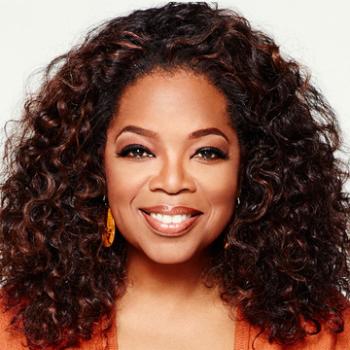
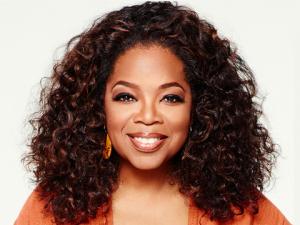 Ross Douthat has a column at the New York Times today which ponders the priestess of pop religion: Oprah Winfrey.
Ross Douthat has a column at the New York Times today which ponders the priestess of pop religion: Oprah Winfrey.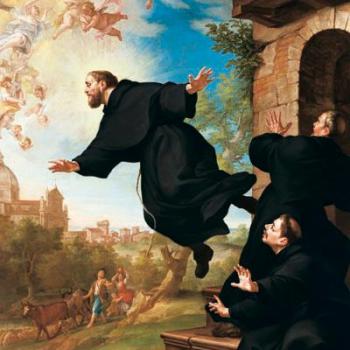
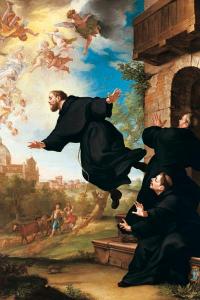 Today is the feast day of St Joseph of Cupertino. To learn about his life go
Today is the feast day of St Joseph of Cupertino. To learn about his life go 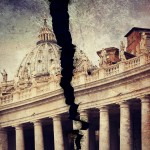
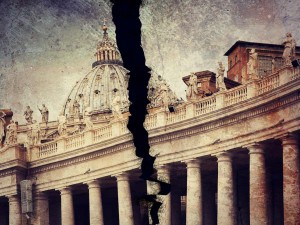

 Doctrine seems to be the church’s bad boy these days.
Doctrine seems to be the church’s bad boy these days.




